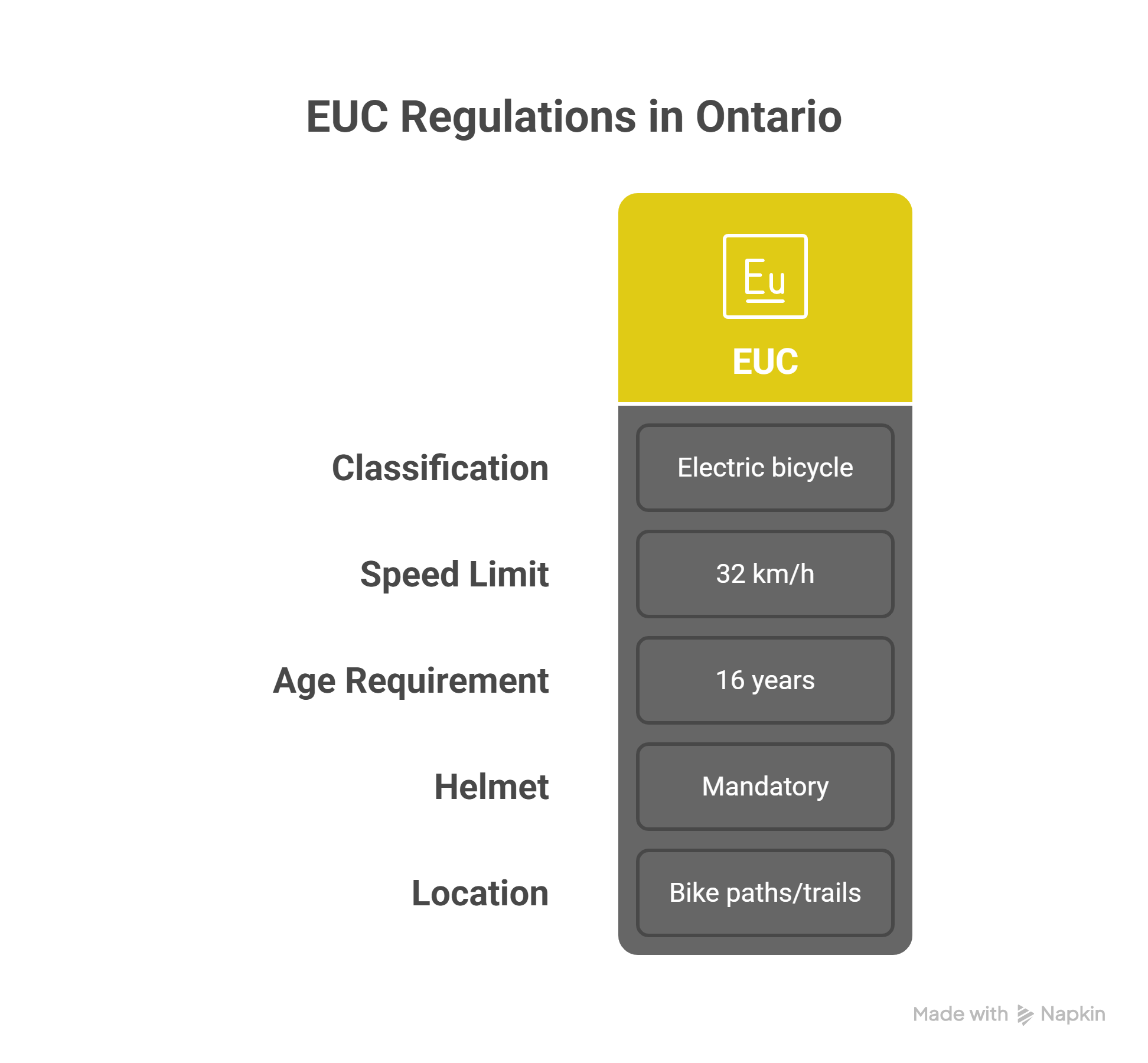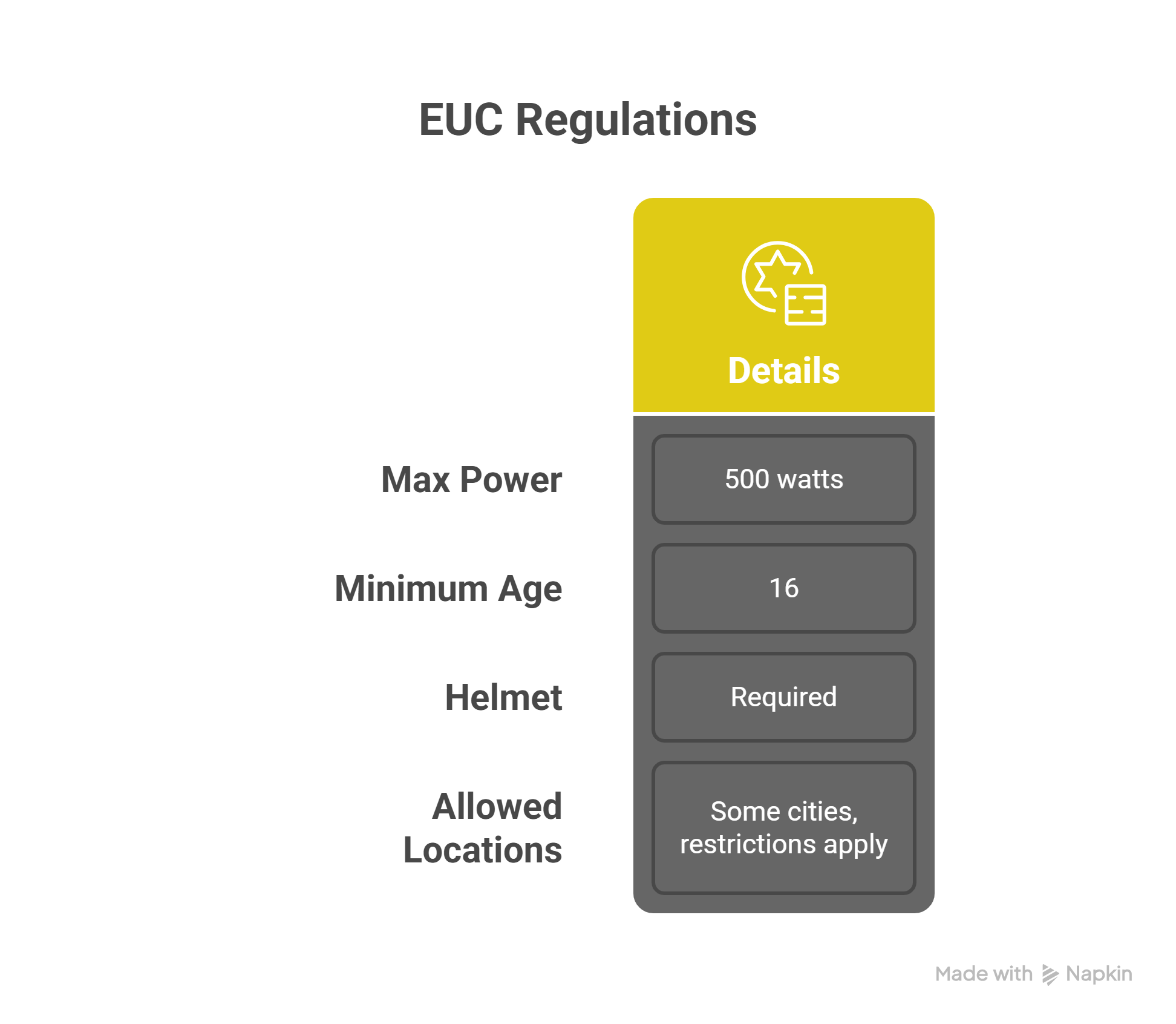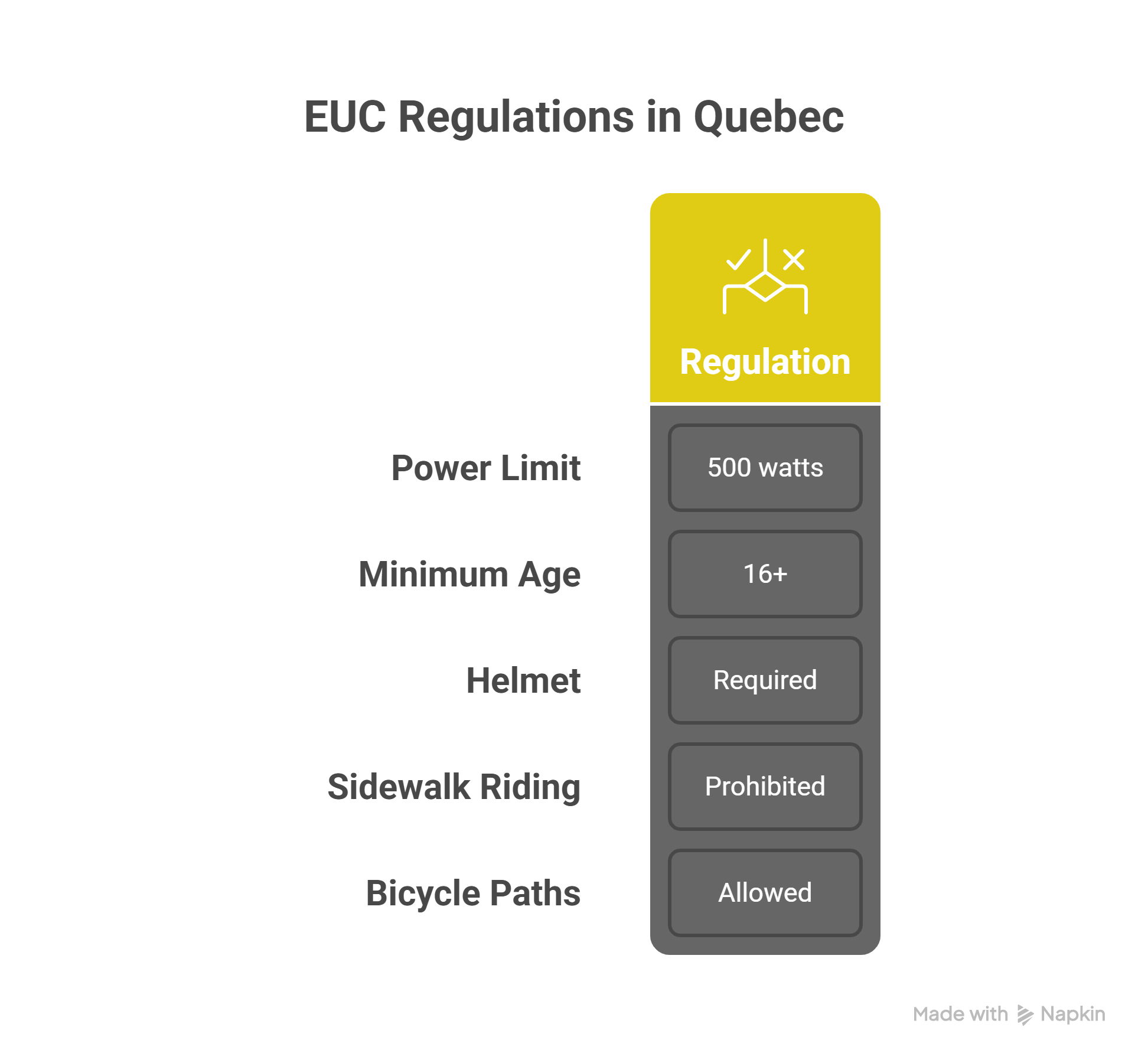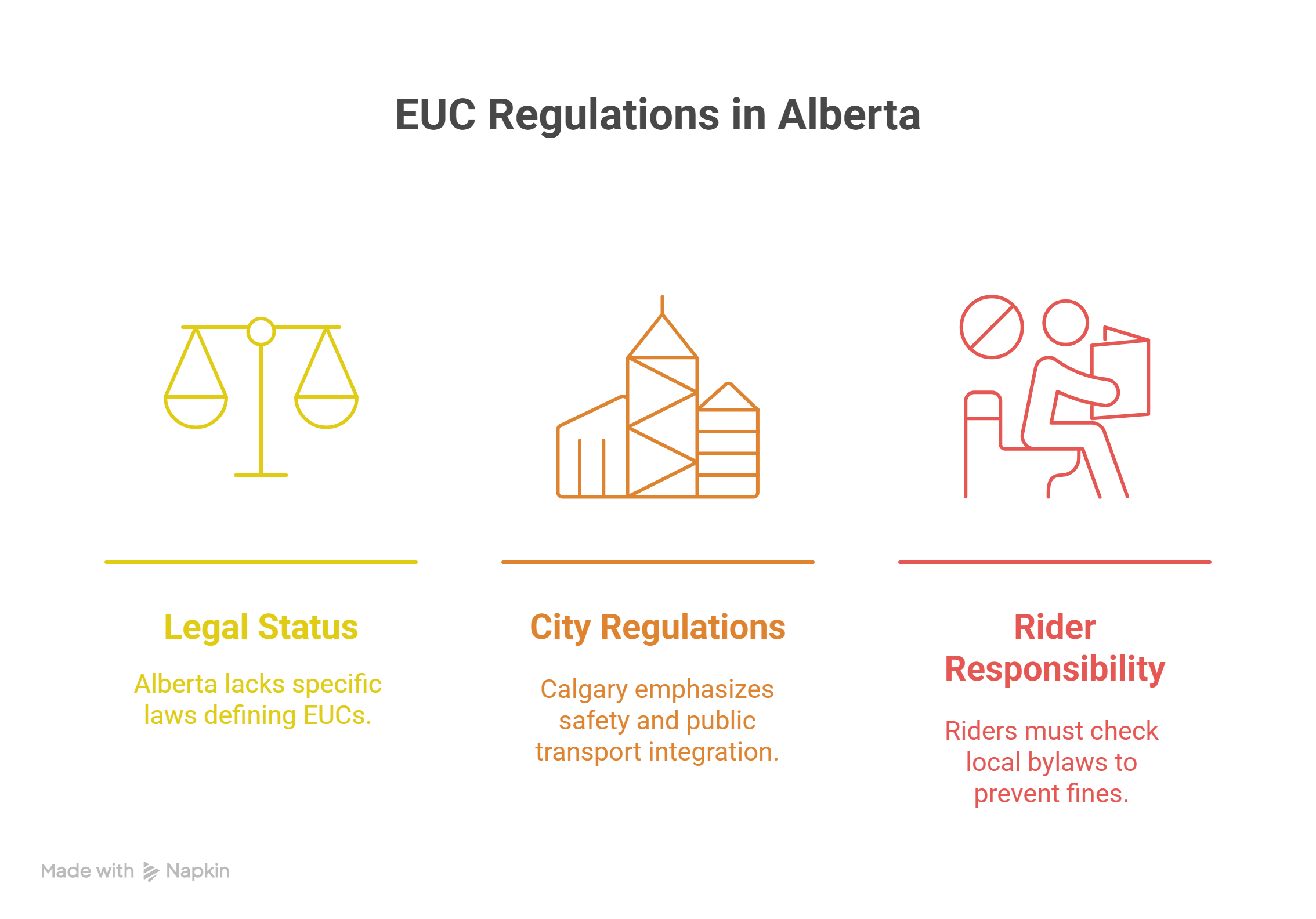Electric Unicycle Laws in Canada: What Riders Need to Know in 2025
Posted by Mohamed Ali krid on 25th Jun 2025
Electric unicycles (EUCs) are gaining popularity as a fun and efficient mode of personal transportation across Canada. However, the legal landscape for EUCs remains complex and varies significantly by province and municipality. This guide breaks down the current electric unicycle laws in Canada, helping riders stay informed, safe, and compliant.
Understanding Electric Unicycle Laws in Canada
Canada does not have a unified national law specifically addressing electric unicycles. Instead, provinces and cities regulate EUCs under broader categories such as electric bicycles or personal electric vehicles, often with differing rules and restrictions. This means that the legality of riding an EUC on public roads, sidewalks, or bike paths depends heavily on your location. If you're considering purchasing an electric unicycle, you can explore a wide selection at Smartwheel Canada EUC.
Legal Status Overview
- Federal Guidelines: Electric unicycles do not fit neatly into categories like motor-assisted cycles or limited-speed motorcycles, which require pedals or specific engine power and registration. As a result, EUCs often face restrictions due to safety and regulatory uncertainties.
- Provincial Variations: Some provinces treat EUCs similarly to electric bicycles, while others have yet to clearly define their status, leading to a patchwork of regulations. To find EUCs that meet varying provincial standards, you can browse the latest models at Smartwheel Canada.
Electric Unicycle Laws by Province
Ontario
- EUCs are generally classified under electric bicycles according to the Ontario Highway Traffic Act.
- Speed Limit: Maximum 32 km/h on public roads.
- Age Requirement: Minimum 16 years old.
- Helmet: Mandatory for all riders.
- Ontario has pilot programs allowing EUCs on certain bike paths and trails, but local bylaws may impose additional restrictions1.

British Columbia
- EUCs are considered electric bicycles if they meet criteria such as a maximum power of 500 watts.
- Age: Riders must be at least 16.
- Helmet: Required.
- Cities like Vancouver and Victoria allow EUCs but may restrict their use on sidewalks or certain public areas12.

Quebec
- EUCs face similar regulations to electric bikes with a 500-watt power limit.
- Age: 16+.
- Helmet: Required.
- Sidewalk riding is prohibited unless local laws specify otherwise.
- Quebec has developed extensive bicycle path networks that EUC riders can use legally in many areas1.

Alberta
- Alberta has not fully defined EUCs legally; they are not explicitly categorized as bicycles.
- Local regulations in cities like Calgary focus on safety and integration with public transport.
- Riders should consult municipal bylaws to avoid penalties12.

Practical Tips for Electric Unicycle Riders in Canada
- Stay Updated on Local Laws: Regulations can change frequently. Check provincial transportation websites and municipal bylaws regularly.
- Wear Safety Gear: Helmets are mandatory in most provinces; consider additional protection like knee and elbow pads.
- Ride Responsibly: Use designated bike lanes or paths where allowed, and respect pedestrian zones.
- Engage with Local EUC Communities: Joining rider groups can provide insights into local rules and safe riding practices. And if you're looking to get started with your own electric unicycle, check out Smartwheel Canada's EUC collection for reliable and high-quality options.
FAQS
What is the maximum speed allowed for electric unicycles in Canada?
The maximum speed limit for electric unicycles is typically around 32 km/h (20 mph), aligning with electric bicycle regulations. Some provinces may have specific power or speed restrictions, so verify local laws.
Are there any power limits for electric unicycles in Canada?
Yes, many provinces limit the motor power of electric unicycles to 500 watts or less, classifying them similarly to electric bicycles. This helps ensure the vehicle meets safety and regulatory standards.
Disclaimer: The information provided in this blog post is intended for general guidance and informational purposes only. While we have made every effort to collect accurate and up-to-date details on laws across Canadian Provinces, regulations can may differ a bit or change without notice depending on your province or local municipality. We are not legal professionals and are not liable for any actions taken based on the content of this post. Please always consult your local bylaws to the latest legal requirements in your area. This post is a summary, not a substitute for official legal advice.

